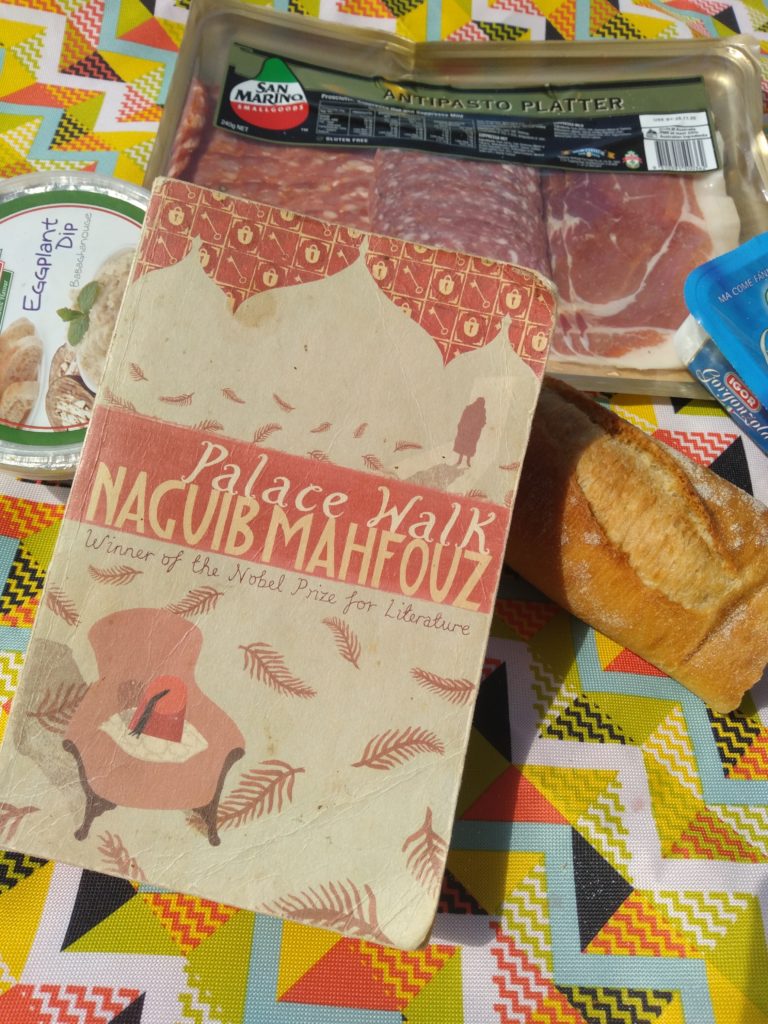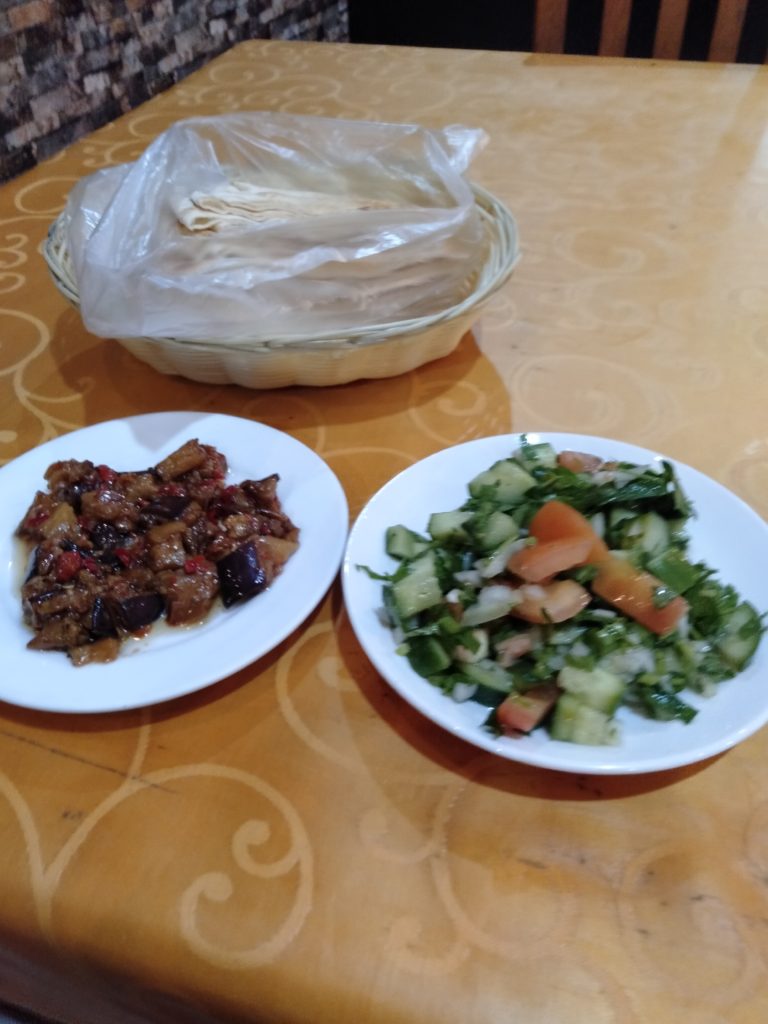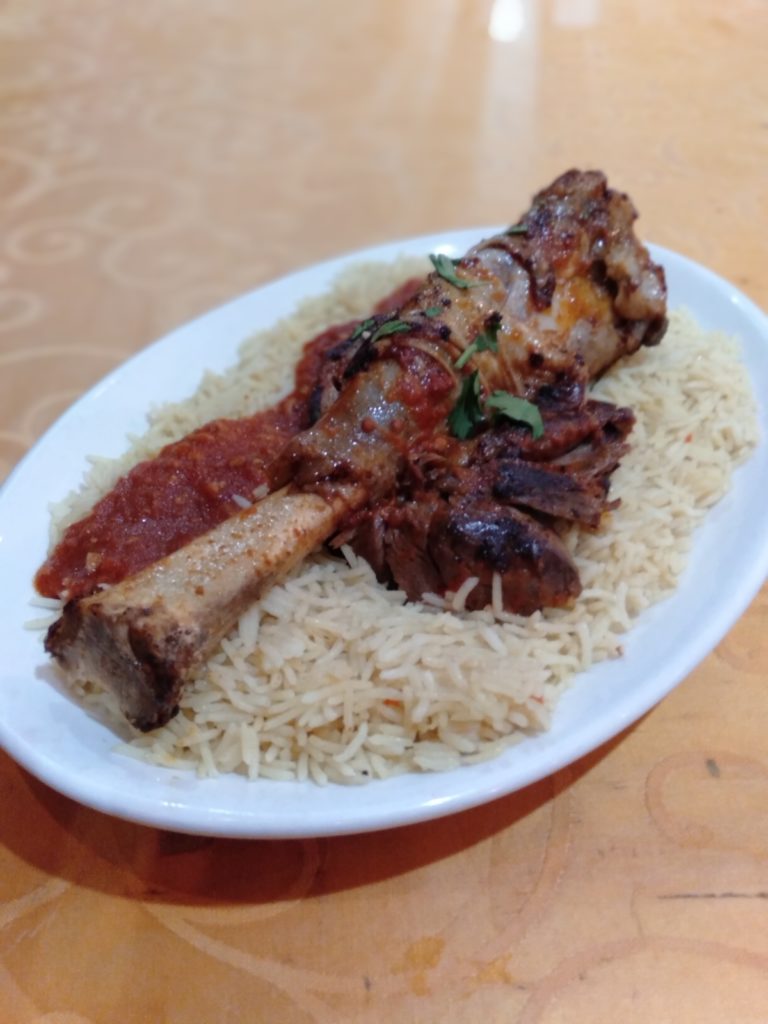watch
Clash, (Mohamed Diab), Nelly Karim, Hany Adel, Tarek Abdel Aziz. 2016
An outsider with little knowledge of Egypt’s political turmoil and social unrest this past decade would likely find ‘Clash’ to be a thoroughly compelling, at times unbearably tense thriller. The based-on-true-events nature of the narrative adds layer upon layer of intrigue and importance to Diab’s airtight film. Allowing himself a few year’s breathing space, the writer/director tackles the 2013 Coup D’etat of President Mohamed Morsi and its bloody aftermath. The viewer is given no time to gain bearings as tension builds from the opening scene. Protesters from either side of the spectrum are hauled into the back of a grimy, dimly lit police van and left to battle the heat, claustrophobia and their own prejudices as the stakes climb throughout a randomly chosen day of impotent anger. The cast of unknown faces largely do a superb job of building complex, intense, but also sympathetic characters with little back-story or screen time to build up a rapport with the audience. Clash portrays both sides of a brutal nationwide conflict within the confines of a moving prison cell without pointing fingers or choosing an allegiance, preferring to offer a timely reminder that people who are predisposed by society to hate each other aren’t necessarily all that different. Diab’s vision is one of hope amongst the rubble, one that suggests his countrymen may have a fighting chance if they look past their obvious divisions and work together. It’s a message that is as pertinent in the western world as it is on the mean streets of Cairo. 5/5
stream@: https://www.sbs.com.au/ondemand/video/1573009475519/clash
Cairo 6,7,8 (Mohamed Diab) Nelly Karim, Maged El Kadwany, Bushra, Nahed El Sabai. 2010
Diab’s debut shows just how much he learned as a film maker in the years that intervened between this and his masterly follow up. His earnest, at times immensely powerful film about sexual harrassment in modern day Egypt is groundbreaking and flawed in equal parts. A story of three women of different socio-economic backgrounds battling the inevitablilty of day to day assault and molestation was always going to draw heat for its negative portrayal of a conservative country. However, the international acclaim 6,7,8 recieved upon its release caused the kind of scrutiny that only a small percentage of films have to undergo. A prominent Egyptian attorney allegedly campaigned to have its entry into the Dubai film festival blocked whilst popular balladeer Tamer Hosny attempted to have the use of his music removed from the film because of lyrics he felt were used out of context. It was to no avail, the song stayed and indeed Diab took home the Muhr Emirati for best feature film in Dubai.
Rewatching the movie a decade on, the controversy surrounding its release is not surprising. Societal problems being swept under the rug is hardly a rare phenomenon and 6,7,8 neither shirks the issues nor makes apologies for them. The plot stems from Egypt’s first ever sexual harassment case a mere two years earlier, as Nelly (El Sabai) a young aspiring stand-up comic is attacked outside her home by a passing motorist. She takes the unprecedented step of pursuing legal action and in doing so crosses paths with upwardly mobile Seba (Karim), raped in the aftermath of a national soccer team victory with the colours of the flag still painted to her face, and poor Fayza (Bushra), catching cabs she can’t afford to work to avoid the daily gropings of strangers on crowded city buses. When Fayza begins taking violent action against her attackers via the use of a small knife to the groin she immediately draws attention of the authorities. In the film’s second half the women band together with plans of a vigilante mission which thankfully never really eventuate. As the plot threatens to unravel completely, El Kadwany’s charismatic turn as the hefty, cocksure but ultimately sympathetic detective tracking our heroines holds things together. The final “and justice for all” tinged courtroom triumph is dripping with saccharin and really should’ve been re-thought.
Cairo 6,7,8 is a courageous, massively ambitious piece of work. Ultimately it was a challenge that probably came too early in Diab’s career. That he came as close as he did to pulling it off is a testament to his budding talent. 3.5/5
stream@: https://www.youtube.com/watch?v=blhi5VZnIPY&t=301s
The Cell, (Tarek Al Aryan) Ahmed Ezz, Amina Kalil, Samer al-Masry. 2017
Cairo cop and indefatigable asshole Seif spends his days cracking wise with his unit and pumping iron at the given opportunity. By night he cracks wise with his domesticated friends, pumps iron some more and burns off any remaining testosterone by competing in mixed martial arts tournaments. His structured world is thrown into upheaval somewhat when fellow cop and brother from another womb, Mohamed, is permanently relieved of his duties by the titular terrorist cell during a raid. Much soul-searching, macho grandstanding and training montaging ensue. Quite why a man as completely self absorbed as Seif would be so devastated by the death of anyone but his hair-stylist is unclear but it paves the way for a good old fashioned revenge mission and presumably that’s why the punters bought a ticket. Director Alarian handles the action set-pieces with no little panache: particularly a terrain traversing car chase midway through feels like it belongs in a better movie. There’s satisfaction to be had in the inevitable showdown as well, but not a whole hell of a lot else going on save every renegade cop on a rampage cliche in the manual. 2.5/5
stream@:
https://www.netflix.com/w inatch/81035883?source=35
read
Palace Walk, Naguib Mahfouz, 1956

Lock down’s a bitch right? Stuck inside pondering mortality as the world turns unabated by the virus that’s selectively killing hundreds of thousands of us. Covid 19 might be holding up our lives but it can’t keep the sun from shining. Waves still roll into beaches worldwide one after the other, tempting us with their carefree monotony. At least you’re not stuck in solitary confinement while the party rages on without you. There is no sense of missing out to be had because there’s nothing to miss out on. Nothing that won’t be there to enjoy when we’re allowed back out again. 2020 may well be remembered as the year that time paused, when industries that stop for nothing drew to a shuddering halt. Perhaps we should all be permitted to adjust our age by however many months this takes to clear up?
Cairo 1918 was a rather different scene to the one we face today. Yeah the British had Egypt on a lockdown of sorts, their armies having been camped there since some time in the 1870’s, but with the great war drawing to a close, Egyptians with the means and standing to paint the town generally tended to do so. Part one of Nahguib Mahfouz’ much celebrated Cairo trilogy adopts this setting and introduces us to Ahmad Abd al-jawad, a man imposing a lockdown strict and unjust enough to render gripes about social distancing absurd. Ahmad’s wife Amina hasn’t been outside without him in twenty years and even then it is only in a motor vehicle to visit her mother. Meanwhile he sees to it that his two late teens daughters have never been viewed by any man in any capacity. Only an approved arranged marriage can bring about any change in this situation. His three sons, while permitted various freedoms that are unthinkable for their female kin, nonetheless live in fear of their tyrannical father. However, when Ahmad makes his nightly sojourns into the Cairo nightscape a rather different character emerges. Ahmad is a heavy drinking Casanova, a man who embraces the edict of wine, women and song so wholeheartedly it consumes him. Upon his family he hoists the strictest reading of Islamic law, but they are rules that are of no consequence to him.
It is through this prism that the reader is given an exclusive introduction to Cairene life a century ago. Mahfouz’ fine novel captures in buzzing detail the social norms of a nation steeped in tradition yet taking its first steps toward a new independence. Serving as a backdrop for much of the story, British protectorate intensifies in the book’s final third eventually leading to tragedy for the Al-jawad clan. Social restrictions are imposed on everyday Egyptians, most but not all of whom unused to having their freedoms curtailed in such a manner. Our tribulations today pale in comparison of course, and the restrictions we face are saving lives rather than costing them. Palace Walk shows the other way state-sanctioned lock down can go when unchecked. It’s a story worth remembering in these times of ours.
Picked up for $12 at gleebooks on Glebe Point Rd.
listen
Umm Kulthum
Boundary shattering, era encompassing balladeer of immeasurable fame and standing in the arab world. Kulthum rose to prominence in the first half of the 1900’s and could well have taught aspiring musicians of today a thing or two about overcoming obstacles. As a child performer of abundant potential she was forced to dress as a boy in order to perform, her intense drive stemming from a need to raise up out of extreme poverty. From inauspicious beginnings she would eventually become known as the voice of Egypt, awarded the highest level of honours by the King in 1944. From the 1930’s, when her concerts were broadcast nationally on the first Thursday of every month, up until her death in the the mid 70’s she released and performed music, tasting a level of fame inconceivable to your average platinum selling artist. Her funeral, attended by four million people, was the ultimate testament to her legacy. The fact that her birthdate is unconfirmed (sometime between 1898 and 1904) only adds to her mystique.
Contemporary critics speak in awe of Kulthum’s range and immaculate diction whilst your average Egyptian will likely wax lyrical about the joy her music brings into their life. But listening as an untrained westerner can be challenging for sure. You probably won’t stick it on at a dinner party and you definitely won’t have it on shuffle for your gym routine. The registers it exists in are not at all what we’re accustomed to, it asks plenty of the uninitiated. My experience was one of trial and error and eventual reward. It’s music that can be coarse and even grating, but it’s mood music for sure. If it catches you at the right time, in your car on a rainy day or as that belly dancer gyrates beguilingly between courses it can capture the moment in the purest sense. Music that warns of an onrushing horde of locusts, or whispers promise of a world undiscovered.
The 1996 documentary “a voice like Egypt” narrated by Omar Sharif is available for free on Youtube, as is much of Kulthum’s immense body of work.
eat and drink
a taste of Egypt, 2 18-20 Greenfield Parade, Bankstown.



Lockdown, shit. I’m still only in Five Dock. Every time I think I’m going to wake back up in the real world. When I was at home during the first wave, it was worse. I’d try and sit down for a meal and there’d be nothing open.
I barely said a word to my girlfriend till I said yes to A taste of Egypt. When I was at home, I wanted to be there. When I was there all I could think about were lamb shanks.
I’d been there an hour, waiting on dessert, mid-section getting softer. Every minute I sat at that table my resistance grew weaker. And every time that old lady in the back fanned those charcoal flames the aromas grew stronger. Every mouthful I took the floor moved a little closer.
Everyone gets everything they want. I wanted an authentic dining experience and for about $30 they gave me one. Brought it out to me with a free starter..
It was a real choice meal, and by the time it was over, I’d be ready for another one.
goal of the month
Money for old rope for a player of Mo Salah’s quality, and the fact that there isn’t a crowd present makes it feel like even more of a training run. Still, there’s nothing like a well hit volley and you’ve gotta love the balanced LFCTV commentators!
Great blog, left me regretting that I haven’t made it to Egypt, Cairo in particular. My first interest was very much triggered by my reading of the wonderful Naguib Mahfouz trilogy of which Palace Walk is part and which I can recommend without reservation. Whilst at this late stage in life I may not get to Egypt, a trip to “A Taste Of Egypt” might be on the cards.